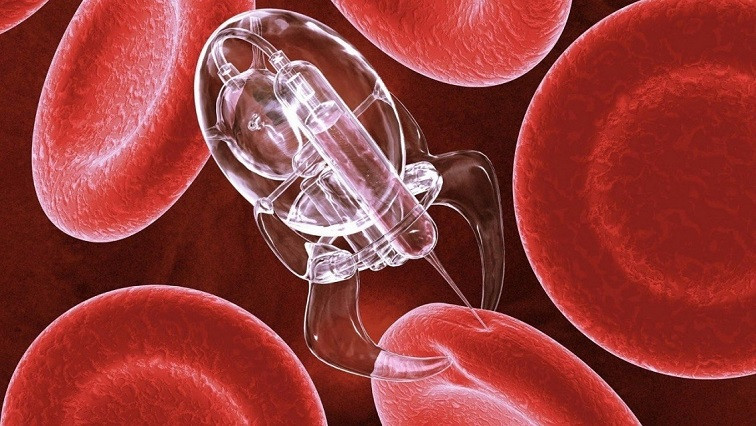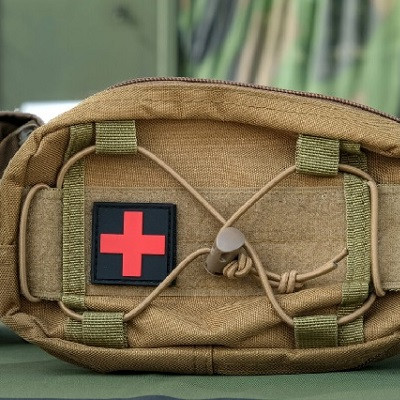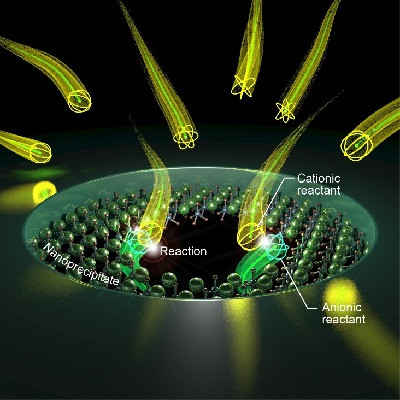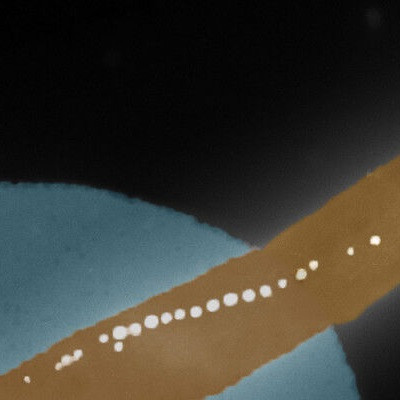Nanotechnology is an emerging and rapidly developing area in the pharmaceutical and medicinal field.
For example, nanoparticles can be used as drug delivery systems. Nanotechnology could help overcome the limitations of conventional drug delivery such as biodistribution and intracellular trafficking. This can be achieved through cell-specific targeting, molecular transport to specific organelles and other approaches.
Prof Ijeoma Uchegbu is one of the scientists working in this area. A professor of pharmaceutical nanoscience at University College London, Uchegbu spoke about her work at Science Foundation Ireland’s annual Science Summit earlier this week.
She has studied the mechanisms of drug transport across biological barriers and created transformational drug transport nanoparticles.
Through her work, Uchegbu has shown that peptides could be delivered across the blood-brain barrier to elicit a pharmacological response, when presented as peptide drug nanofibres. She has also demonstrated peptide transport into the brain, using peptide nanoparticles delivered via the nose-to-brain route.
These findings led to the enkephalin pain medicine candidate NES100, designed to address the opioid crisis.
The technology underpinning NES100 won first prize in the Royal Society of Chemistry’s Emerging Technologies competition in 2017 and the Academy of Pharmaceutical Sciences’ Science Innovation Award in 2016.
“My career has been a lovely experience so far and every single mistake I have made or disappointment that I have encountered has added to my learning,” Uchegbu told SiliconRepublic.com.
“I am a firm believer that you learn more from failed attempts than from successful attempts. I would not change the past if I could so it is very fortunate that I cannot alter the past.”
Uchegbu explained the work she and her team do in more detail. “When the drug is encapsulated in nanoparticles, we can use the particular features of the nanoparticles to control where the drugs go in the body,” she said.
“We can dose eye drops that stay in the eye tissues, deliver high quantities of drugs to the eye tissues and do not go to the blood, and we can dose drugs that go to the brain and do not predominantly accumulate in the blood and other organs. This means that we can reduce side effects and make the drugs more effective.”
Uchegbu is currently working on delivering biological molecules to various parts of the body in a way that conventional dosage forms just cannot do effectively. This, she said, could be the future of drug delivery.
“We think that these biological molecules which are currently all injected will be administered in other non-injectable ways that we are working on.”
A new era
While the benefits of nanotechnology in drug delivery can include better efficacy, more effective transport across biological barriers and better absorption, the emerging field is not without its challenges.
In an article in Frontiers, Gianfranco Pasut, professor of pharmaceutical technology at the University of Padua, said the diversity and complexity of the different approaches to nanomedicine have been “obstructing the realisation of general guidance protocol”.
Uchegbu added to this, saying the biggest challenge in her opinion is that “the pharmaceutical development ecosystem is not set up to really deal with our type of nanoparticles in a mainstream way”.
“So, we have to work closely with service providers to enable them to deliver what we actually want in drug development,” she said.
However, there is reason to be optimistic about the future of drug delivery. Not only has Covid-19 ushered in a new era of faster and more innovative drug manufacturing and delivery, it has also opened up the use of nanotechnology and has made nanoparticles in drug delivery more mainstream.
While some Covid-19 vaccines were deemed success stories for the use of mRNA technology, they also gave nanotechnology a chance to shine, as these vaccines used nanoparticles to protect the antigen cargo.
There is still uncertainty about how this next generation of nanotechnology-enabled vaccines may be deployed in the future.
But Uchegbu said she’s hopeful the advances made during the pandemic will open up opportunities for those working in the industry.
“It would be nice for us to be able to capitalise on this new learning and we hope that we can use this new era to correct any misconceptions about nano-enabled drugs.”
Read the original article on Silicon Republic.







